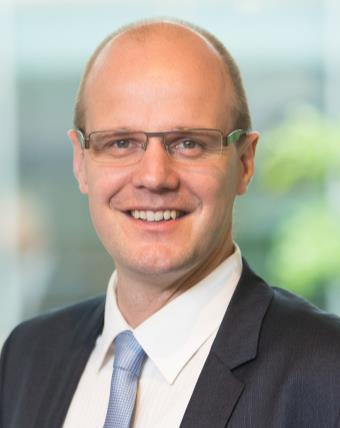As the Corporate Social Responsibility Directive (CSRD) starts taking effect, Joanna Nathanson, Freshfel policy advisor on sustainability and international affairs, and Frederic Rosseneu, Freshfel vice president and sustainability manager at Greenyard, shed some light on its expected impact in 2024 and beyond
Joanna, what is the Corporate Social Responsibility Directive, the CSRD, and why is it necessary?
Joanna Nathanson: The CSRD builds on the NFRD, the Non-financial Reporting Directive, and it takes it a step further, trying to put sustainability reporting on a par with financial reporting and bringing it up to equal footing. It will cover a whole load of different sustainability criteria, but it’s not only a tick-the-box exercise or just about compliance. It’s also about what it will bring going forward, what this transparency will bring to these topics and the coherence it can bring to communication on this.

And who is going to be impacted this year by the directive?
JN: This year, it is the larger companies that have to start collecting their data and reporting for 2025. There are a set of criteria that you have to meet to be recognised as one of these larger companies, and then there will be a step-by-step, phase-in period for the other companies in three to four years, plus some different options for smaller companies.
Frederic, can you tell us what sort of support there is for this directive across the sector?
Frederic Rosseneu: It’s difficult to say. Concerning the disclosure obligation, some companies are already doing it. Through the NFRD, the large companies listed on the Stock Exchange were already subject to this kind of legislation, but the reporting obligations now go much further.
What it does, of course, is bring a lot of additional work for everyone. The aim is to bring more transparency to both financial stakeholders and other external stakeholders, to make the industry more transparent and raise the bar, but also to make sure that the bar is even for everyone. I think that’s an important element. We’re hoping for a level of standardisation, which will hopefully help to reduce the cost for everyone.
For those just starting, I think it will be an intensive two to three years to really climb that steep hill toward compliance, and that’s where the Freshfel initiative comes in, to reduce the workload and look at what we can do in common to take on that burden collectively.
JN: The project which Freshfel Europe is now initiating is open for companies in the fresh fruit and vegetables sector to join. It aims to create a common basis for the sector when it comes to the mapping and communication of ESG performance and efforts. By pooling resources and knowledge, we hope to create a substantiated framework for the sector to identify and progress in their performance, and to leverage this going forward towards for instance the CSDDD and the EU Taxonomy.
This effects companies beyond fruit and vegetables, of course, doesn’t it?
FR: It’s really across the board and not only the food industry. And it doesn’t only affect European companies, of course. That’s where the initial focus is, but all companies who have major operations or high sales in Europe will sooner or later become subject to that legislation as well.

This is part of a trend that is developing for companies to become more transparent. This is one example of the legislation that is starting to impact us now, but we have already another piece of legislation that is now in final negotiations on sustainability due diligence, which will require even more transparency down the chain. Now it’s very much about, what are we doing as a company? Future legislation will be even more about what is happening in your supply chain and making sure that everything is covered and that there are no risks being omitted.
The legislation we are discussing is a European legislation, but there is an also an international trend through the International Sustainability Standards Board, so these kinds of rules are also being fixed at an international level. We want our companies to adopt these rules.
Is there going to be an effort to communicate this to your average consumer?
JN: The Freshfel project is not only a compliance exercise, it’s hopefully going to serve as a foundation for a more transparent, a more coherent and clearer way to communicate the good story that the sector has to tell and also to show more about the improvements that are being made and what efforts are being taken.
Are you optimistic looking forward, especially when it comes to the ultimate aim of making agriculture net zero?
FR: I am optimistic. We work in a good sector that is part of the solution. Fruit and vegetables have a very low environmental footprint. The more people consume them, the lower the environmental impact of our diets.
Reaching net zero by 2050 will be challenging – it’s not a walk in the park – but the willingness is there. There will be a steep learning curve, but there is a global recognition that we need to move forward.
But we also need to be realistic. Farming is a very conservative sector, so it takes time to change things. A lot of these things will require farmers to change certain practices, and encouraging everyone to adopt those practices will take time. It’s not something we will do within 5-10 years.
JN: I’m also very optimistic, for a lot of the reasons that Frederic mentioned. Fresh fruit and vegetables is a good sector to be in. Fruit and vegetables are among the best for nutritional value, affordability and environmental impact. We have what is needed to create a more sustainable future, both in terms of social and public health and in decreasing the environmental impact of food systems, and I think the opportunities are there. It’s still going to require some work, but I am confident that we will get there.



